how to calculate facebook ad budget
Calculating your Facebook ad budget is a crucial step in maximizing your advertising efforts and ensuring a successful campaign. By understanding the key factors that influence your budget and making informed decisions, you can optimize your ad spend and achieve your desired results without wasting valuable resources.
Understanding the Importance of Calculating Facebook Ad Budget
Determining your Facebook ad budget allows you to allocate your resources effectively and ensure a positive return on investment (ROI). It helps you set realistic goals, target the right audience, and measure the success of your campaigns. By calculating your budget, you can avoid overspending or underinvesting, thus maximizing the value you get from your advertising efforts.
Factors to Consider for Calculating Facebook Ad Budget
Several factors come into play when determining your Facebook ad budget:
- Business Goals: Clearly define your objectives and align them with your advertising goals. Are you looking to increase brand awareness, generate leads, or drive sales? Your goals will directly impact the budget you allocate to your ad campaigns.
- Audience Size: Consider the size and reach of your target audience. Larger audiences may require higher budgets to effectively reach and engage with potential customers.
- Competition: Evaluate the level of competition in your industry and the average cost per click (CPC) or impression (CPM). Higher competition often drives up the cost of advertising, and you may need to adjust your budget accordingly.
- Ad Duration: Determine how long you intend to run your ad campaign. Longer campaigns may require a larger budget to sustain the desired reach and frequency over time.
By carefully considering these factors, you can calculate an appropriate Facebook ad budget that aligns with your business goals and maximizes your return on investment.
You can read : best web design companies
how to create multiple ad sets in facebook
what does seo in marketing stand for
Setting Goals and Objectives
When it comes to running a successful Facebook ad campaign, it is crucial to have clear goals and objectives in mind. This will help you determine how much budget you should allocate for your ads.
Defining Your Advertising Goals on Facebook
Before you start calculating your ad budget, you need to define your advertising goals on Facebook. Are you looking to increase brand awareness, drive website traffic, generate leads, or increase sales? Each goal requires a different approach and budget allocation.
Determining Key Performance Indicators (KPIs) for Your Campaign
Once you have set your goals, you need to determine the key performance indicators (KPIs) that will help you measure the success of your Facebook ad campaign. These KPIs could include metrics such as reach, engagement, click-through rates, conversions, or return on ad spend (ROAS).
Once you have identified your goals and KPIs, you can start calculating your Facebook ad budget. Consider factors such as your target audience size, ad frequency, bidding strategy, and desired reach. Facebook offers tools like the ad campaign budget optimizer that can help you estimate the budget needed for your campaign.
Remember that your ad budget should be flexible and allow for adjustments based on the performance of your ads. Regularly monitor and analyze your campaign metrics to make informed decisions about scaling up or scaling down your budget.
Audience Analysis
Identifying Your Target Audience on Facebook
When planning your Facebook ad campaign, it's crucial to have a clear understanding of your target audience. Start by defining the demographics, interests, and behaviors of the people you want to reach. Facebook's audience targeting options allow you to select specific characteristics such as age, location, gender, and interests.
Analyzing Audience Insights and Demographics
To calculate your Facebook ad budget effectively, you need to analyze the audience insights and demographics that Facebook provides. These insights offer valuable information about your audience's interests, behaviors, and purchasing habits. By understanding these data points, you can tailor your ad campaigns to target your audience more efficiently, therefore maximizing your ad spend.
Additionally, Facebook allows you to set a budget for your ad campaign and choose between daily or lifetime budgets. Remember to consider factors such as the duration of your campaign, the objectives you want to achieve, and the potential reach of your target audience when determining your budget. Testing different budget allocations and monitoring the performance of your ads will help you optimize your budget over time for optimal results.
Ad Campaign Budgeting Approaches
When it comes to running successful Facebook ad campaigns, calculating your budget is a crucial step. Here are a few key points to consider:
Cost per Click (CPC) vs. Cost per Thousand Impressions (CPM)
Determining whether to use Cost per Click (CPC) or Cost per Thousand Impressions (CPM) depends on your campaign goals.
- CPC: If your objective is to drive traffic to your website or generate leads, CPC may be the better option. With CPC, you pay for each click on your ad.
- CPM: On the other hand, CPM is a better choice if your goal is to increase brand awareness or reach a larger audience. With CPM, you pay for every thousand impressions your ad receives.
Budgeting Approaches: Daily vs. Lifetime Budgets
When setting your ad budget, you have the option to choose between daily and lifetime budgets.
- Daily Budget: If you want to allocate a set amount of money per day for your campaign, a daily budget is the way to go. This approach allows you to closely monitor and control your spending.
- Lifetime Budget: On the other hand, if you have a specific timeframe for your campaign and want to allocate a total budget for that period, a lifetime budget is the ideal choice. This approach helps you plan your overall spending for the entire campaign duration.
By carefully considering these factors and choosing the right budgeting approaches, you can make the most of your Facebook ad campaigns and achieve your desired results.
Calculating the Ad Budget
When it comes to running successful Facebook ads, one of the critical factors to consider is determining your ad budget. By carefully calculating your ad budget, you can effectively reach your desired audience and maximize your return on investment. Here are two key points to help you calculate your Facebook ad budget:
Estimating the Potential Reach and Frequency
To start, you need to estimate the potential reach and frequency of your ads. This involves understanding the size of your target audience and how often you want them to see your ads. Facebook's ad manager provides valuable insights into these metrics, allowing you to make informed decisions.
Determining a Realistic Budget Based on Marketing Objectives
Next, you should determine a realistic budget based on your marketing objectives. Consider what you want to achieve with your Facebook ads, such as increasing website traffic, generating leads, or driving sales. Set specific goals and allocate your budget accordingly. You can use Facebook's Ad Planner tool to estimate the potential reach and cost of your ads based on your marketing objectives.
By carefully estimating the potential reach and frequency, and setting a realistic budget based on your marketing objectives, you can ensure that your Facebook ad campaigns are effective and drive the desired results. Remember to monitor your ad performance regularly and make necessary adjustments to optimize your budget and achieve your goals.
Optimization Techniques
Monitoring Ad Performance and Adjusting Budgets Accordingly
To calculate your Facebook ad budget effectively, it's crucial to continually monitor the performance of your ads. Keep an eye on key metrics such as click-through rates, conversion rates, and cost per acquisition. If an ad is performing well and generating a high return on investment (ROI), consider allocating more budget to it to maximize your results. On the other hand, if an ad is underperforming, it may be wise to reduce its budget or pause it altogether.
A/B Testing to Optimize Budget Allocation
A/B testing is a valuable technique to identify the most effective ad variations and optimize your budget allocation. Create multiple versions of your ads, each with a different element (such as the headline, image, or call-to-action). Run these variations simultaneously and monitor their performance. By analyzing the data, you can determine which ad performs the best and allocate more budget towards it, ensuring that your advertising budget is being spent on the most effective ads.
Remember to regularly review and adjust your Facebook ad budget based on the performance of your ads and the goals of your campaign. This will help you achieve the best possible results and optimize your return on investment.
Tracking and Analytics
In order to effectively calculate your Facebook ad budget, it's crucial to utilize tracking and analytics tools provided by Facebook. By doing so, you can monitor the performance of your ads and make necessary adjustments to your budget.
Utilizing Facebook Ads Manager for Budget Tracking
Facebook Ads Manager is a powerful tool that allows you to track the performance of your ads in real-time. It provides detailed analytics on metrics such as impressions, clicks, conversions, and cost per result. By regularly monitoring these metrics, you can gain insights into how your ads are performing and make data-driven decisions about your budget.
Analyzing Metrics and Adjusting Budgets as Needed
Once you have gathered sufficient data from Facebook Ads Manager, it's important to analyze the metrics and adjust your budget accordingly. Look for trends and patterns in the performance data. If a particular ad or campaign is performing exceptionally well and delivering the desired results, consider allocating more budget towards it. On the other hand, if an ad is underperforming, you may want to scale back the budget or make modifications to improve its effectiveness.
By utilizing Facebook's tracking and analytics tools and continuously analyzing the performance metrics, you can ensure that your Facebook ad budget is allocated effectively and efficiently to maximize your return on investment.
In conclusion, calculating your Facebook ad budget requires careful consideration and planning. By following the steps outlined in this article, you can ensure that your budget aligns with your marketing goals, reaches your target audience effectively, and maximizes your return on investment. Remember to regularly monitor and optimize your campaigns to make the most out of your budget. With the right strategy and budget allocation, your Facebook ads can drive valuable results for your business.
Wrap Up and Recap of Key Points
To calculate your Facebook ad budget effectively, follow these key steps:
- Define your campaign objectives and target audience.
- Determine your desired key performance indicators (KPIs) and set realistic goals.
- Estimate your reach and potential reach using Facebook's Ad Manager tools.
- Consider your advertising strategy and select the ad placement options that align with your goals.
- Calculate your budget based on your estimated reach, desired frequency, and budget allocation.
- Monitor and optimize your campaigns regularly to ensure maximum efficiency and effectiveness.
Helpful Tips for an Effective Facebook Ad Budget Calculation
- Start with a small test budget to gauge the performance of your ads before scaling up.
- Consider using Facebook's advanced targeting options to reach a more relevant audience.
- Continuously analyze the performance metrics of your ads and make data-driven decisions in adjusting your budget.
- Experiment with different ad formats and creatives to find the most effective ones for your target audience.
- Seek expert advice or consult with a digital marketing professional if you need assistance in optimizing your Facebook ad budget.
Creating a Positive Mindset
You probably have an idea of what a positive mindset or positive attitude is already, but let's define it for clarity. According to Remez Sasson, positive thinking is an attitude that focuses on the bright side of life and expects positive outcomes. Kendra Cherry expands on this definition, stating that positive thinking involves approaching life's challenges with optimism and making the most of potentially difficult situations.
Now that we understand the concept of a positive mindset, let's explore how to cultivate it. The key is to make positive thinking a habit. Train yourself to consistently search for the silver lining and make the best out of any situation. This means reframing negative thoughts into positive ones and viewing setbacks as opportunities for growth. Surround yourself with positive influences, practice gratitude, and engage in activities that bring you joy.
By developing a positive mindset, you'll experience increased happiness, better coping skills, and improved overall well-being. Remember, positivity is a choice, and with practice, you can rewire your brain to embrace a more positive outlook on life.
You can also read : seo agency in egypt
corporate video production company
Being the Best Agency in Cairo
To be the best agency in Cairo, you need to prioritize excellence in every aspect of your work. This means delivering exceptional results to your clients, exceeding their expectations, and constantly striving for improvement. Develop a strong team of talented individuals who are passionate about their work and dedicated to achieving success. Foster a positive and collaborative work environment that promotes creativity, innovation, and continuous learning.
Ensure that you stay ahead of industry trends and constantly adapt to the changing market. Invest in the latest technology and tools to provide cutting-edge solutions to your clients. Build strong relationships with your clients by understanding their needs and delivering customized strategies that effectively meet their goals.
Additionally, focus on building a strong reputation by delivering outstanding customer service and maintaining transparent communication with your clients. Continuously evaluate and measure your performance to identify areas for improvement and take decisive actions to address them.
By consistently striving for excellence, you'll establish yourself as the go-to agency in Cairo and attract a loyal client base who values your expertise and commitment to delivering exceptional results.

































































